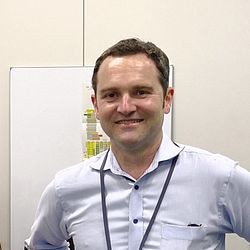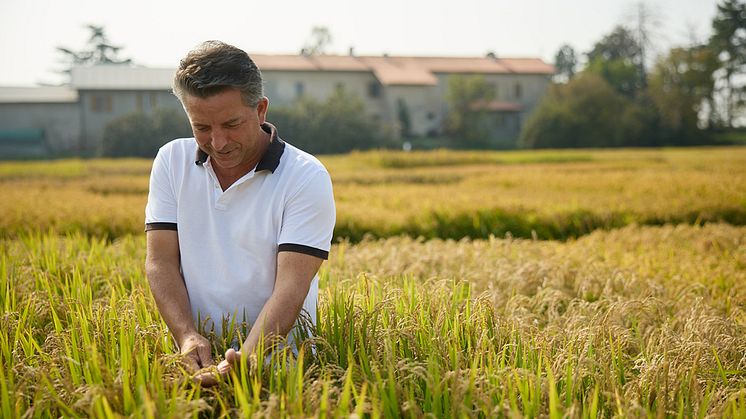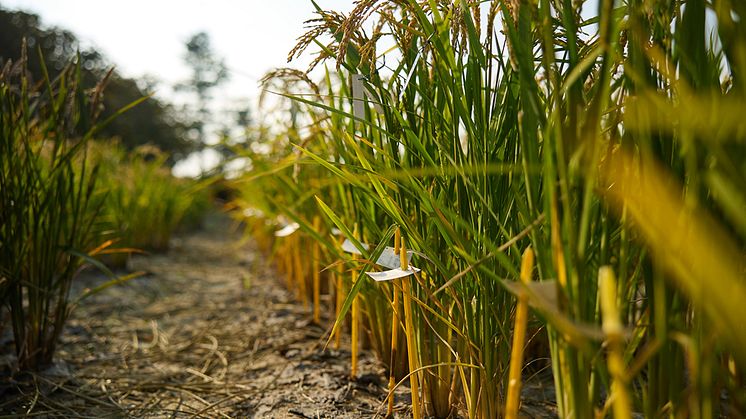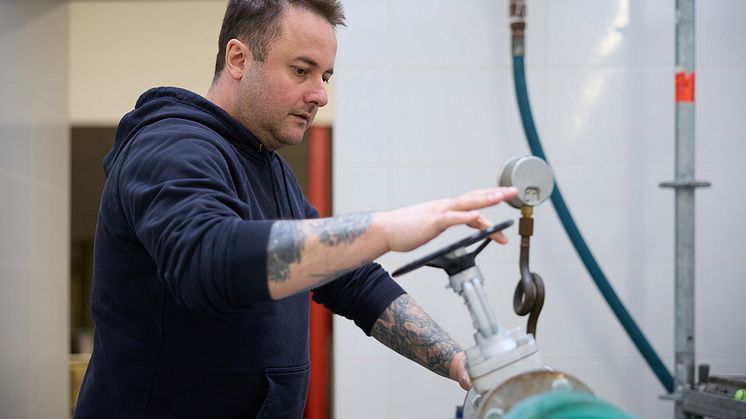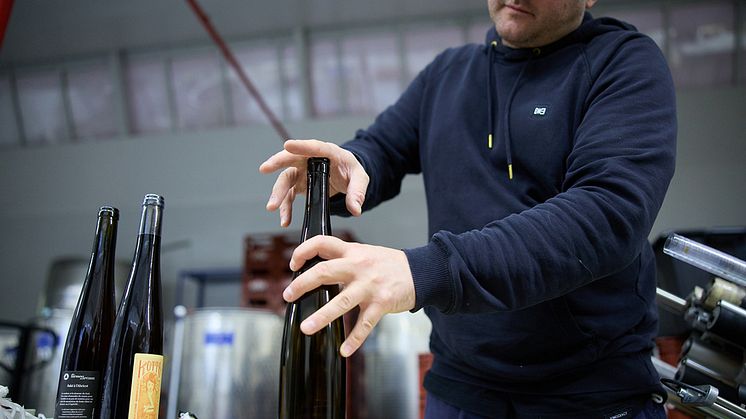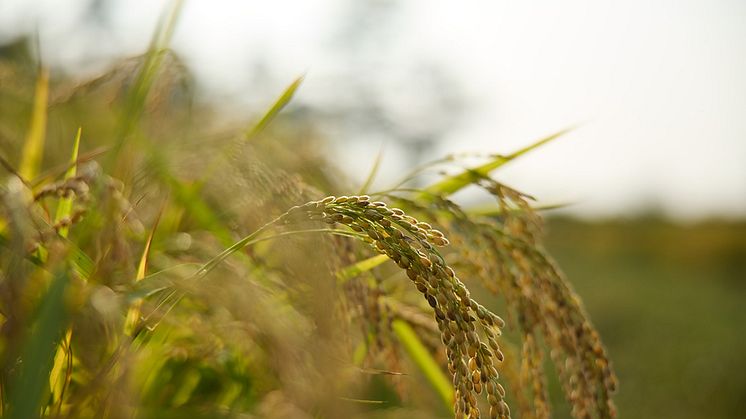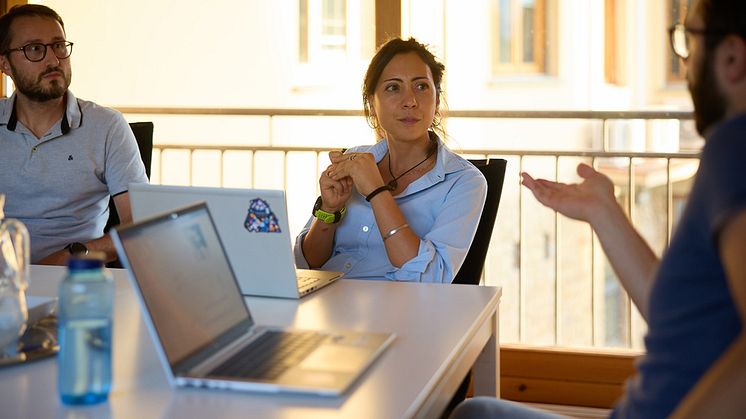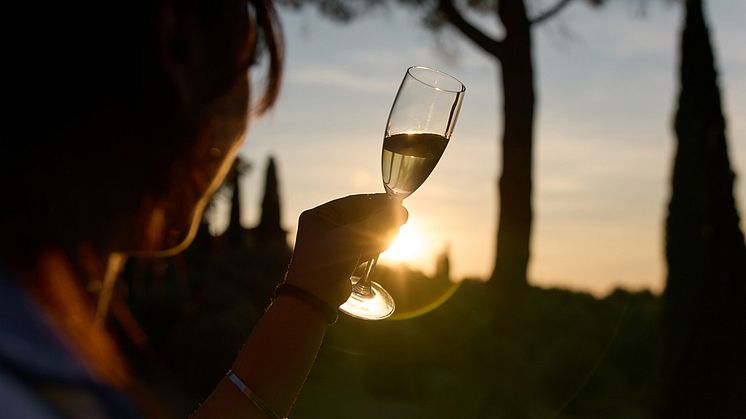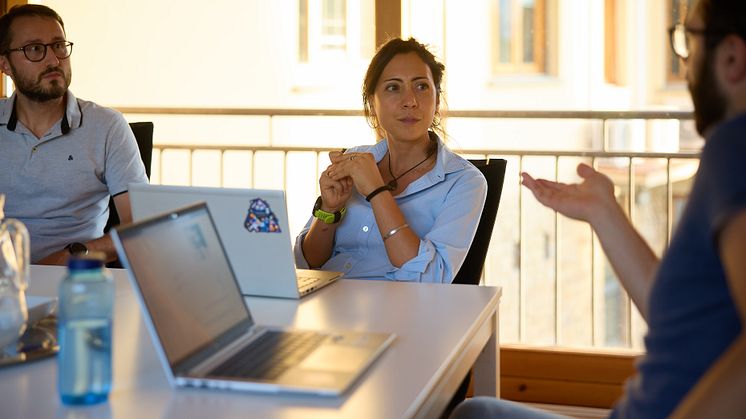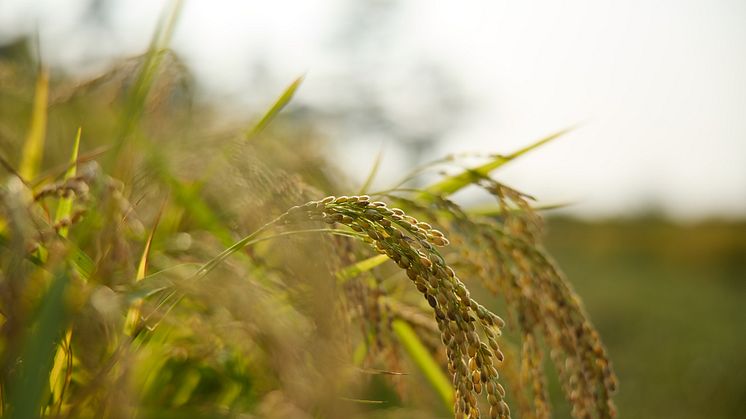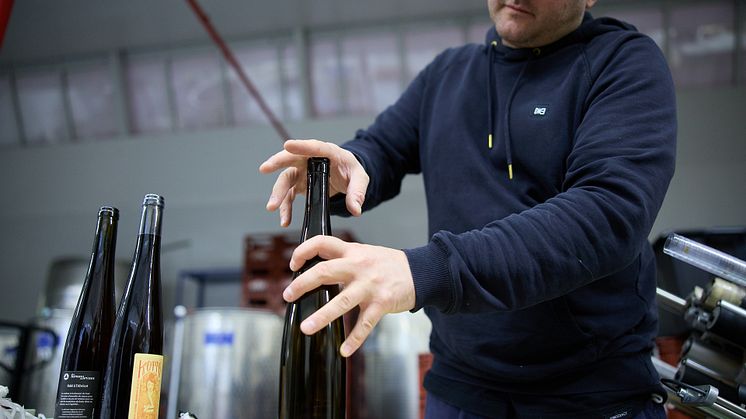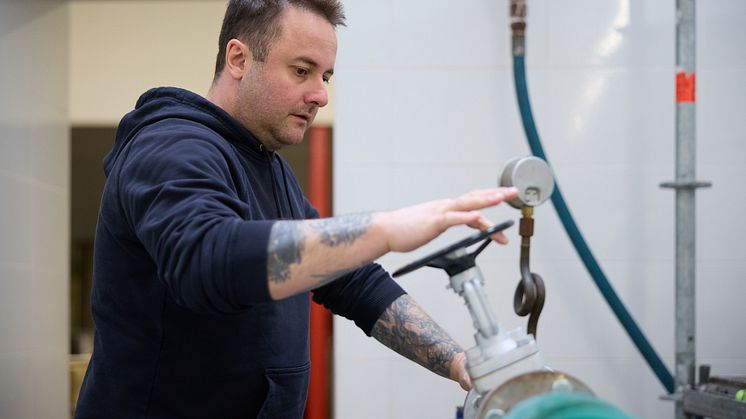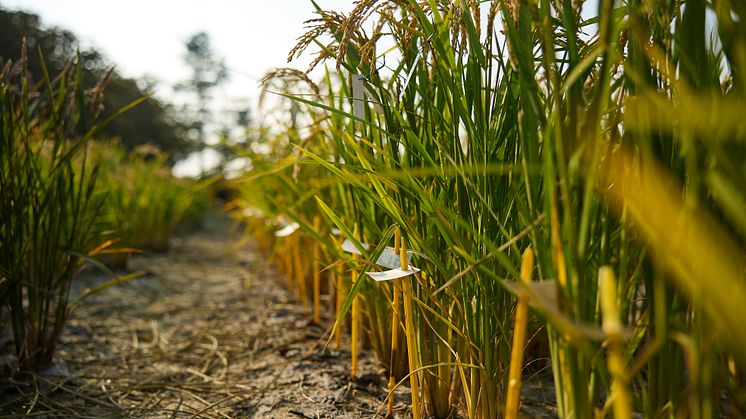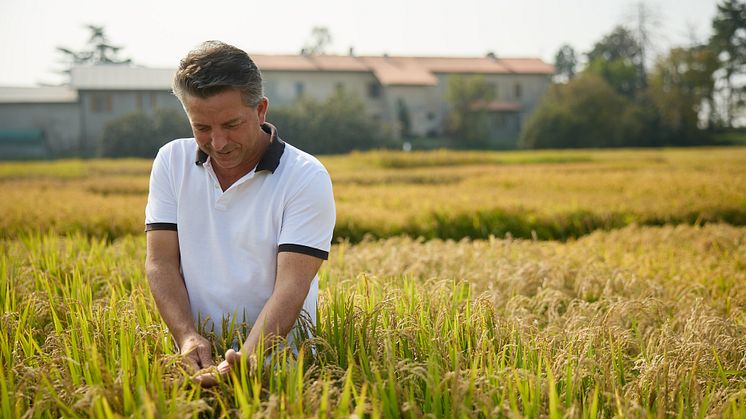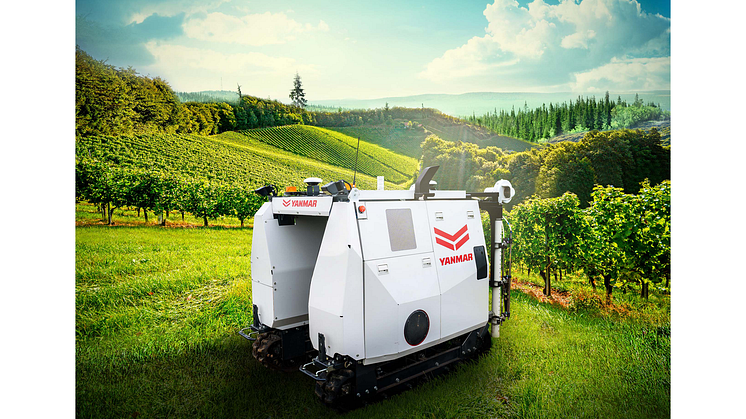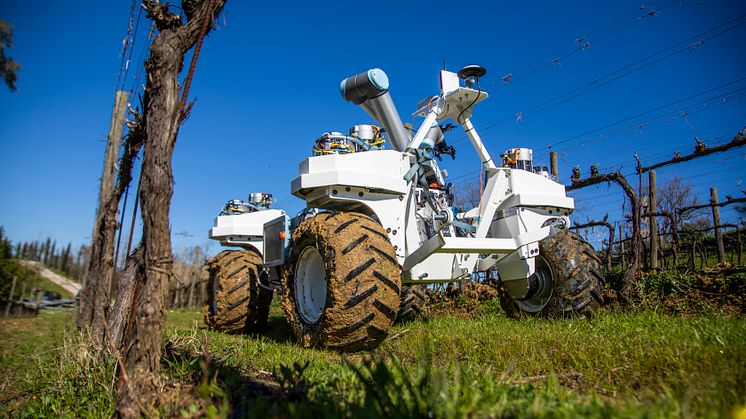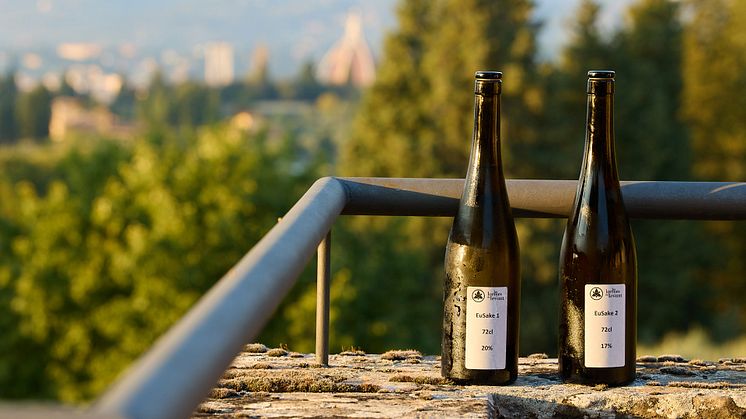
News -
Cultivating Innovation on the European Sake Rice Journey
The demand for sake in Europe has never been higher – interest in the traditional Japanese beverage rebounded to record levels in 2021 post-pandemic, and the global sake market is expected to be worth $10.7 billion by 2028*1. Factors such as the Tokyo Olympics, an increase in e-commerce sales and more Japanese restaurants in Europe have led to year-on-year increases in the amount of sake shipped to the continent from Japan.
A pioneer in solutions for customers on the land, at sea and in the city, Yanmar’s Sake Rice Project exemplifies the company’s commitment to creating a society that offers an exciting life filled with rich and fulfilling experiences. This innovative endeavor aims to develop sake rice varieties suitable for cultivation in a European climate, offering a new and exciting experience for consumers in the form of locally produced sake. Yanmar’s initiative is augmenting the continent’s strong demand for Japanese sake with European sake made from European sake rice, advancing Yanmar’s purpose to realize A Sustainable Future.
Yanmar R&D Europe agronomist Carolina Fabri explains the challenge: “The Italian environment is pretty different from the Japanese. You need to have specific varieties (of rice) that need to be cultivated in specific soil and weather conditions.”
Sake Rice Video
Japanese Soul, European Ingredient
Yanmar partnered with the Italian Rice Experiment Station (IRES) in northern Italy. Here, Yanmar’s team of agronomists met with head of the IRES, Massimo Biloni, to start work on developing a new sake rice variety for the unique soil and climate conditions found in this part of Italy.

“Collaboration with agronomists and experts was very important,” according to Massimo. By studying how to adapt the process of sowing, fertilising, controlling weeds and harvesting, the team ensured these new varieties could thrive.
The distinctive combination of environmental factors, known as terroir, is one of the reasons European sake is so unique. The Italian soil and climate conditions which influence the rice varieties, combined with Japanese brewing techniques, makes for a fascinating new product. Georgio Maggioni, a member of the Sake Sommelier Association in Milan, describes it as having “a Japanese soul, with Italian ingredients.” He has high hopes for the new rice varieties and believes the sake it produces will fit perfectly into the European market, providing consumers with interesting new choices and an enriched beverage culture.
The process of developing new rice varieties was not without its challenges. The Italian environment is very different from Japan’s, and this meant any new rice variety would have to be adapted to the specific soil and weather conditions found there. However, thanks to rigorous research and advanced agronomy technology, the result was two new sake rice varieties available to European farmers: EuSake 01 and EuSake 02. Yanmar was then able to work with milling partners to process the new rice to sake-making standards. Massimo summarised the implications of this success: “Thanks to Yanmar, we are developing not only new sake rice varieties, but also greater sustainability.”

Local Production for Local Consumption
Following the successful cultivation of the new varieties, Yanmar approached local brewers to start turning locally grown sake rice into viable sake.
One of these was Gregoire Boeuf, owner and chief brewer of the sake brewery, Les Larmes Du Levant, located in Pélussin, France. He was given the opportunity to work with the European grown rice by Yanmar and was enthusiastic about the possibility of using local ingredients.

“When you drink sake, you’re not only drinking a beverage – you are drinking history, you are drinking the cultural heritage of Japan itself,” Gregoire says. He explains that the sake making process is a fine balance between rice, water, yeast, enzymes and the right temperatures. “Everything happens at the same time, so it’s a very living process.”
Importantly, the quality of sake made at Les Larmes Du Levant is not compromised when using European rice instead of Japanese. Gregoire states that the varieties produce an excellent final product which will offer a new drinking experience for his customers. There are several benefits to his business: local ingredients for local produce contribute to a more sustainable and environmentally friendly business model, whilst also offering an exciting new opportunity for the European consumer. At the same time it provides breadth and diversity that is complimentary to the traditional Japanese sake market.

“It’s of the utmost importance for the future of sake making in Europe,” he says.
Sustainable Solutions for Food and Drink Production
The Sake Rice Project also addresses environmental and economic concerns which come with transporting sake rice from Japan to Europe. In the last five years, the cost of shipping a 720ml bottle of sake increased 1.5 times, from USD 5.20 to USD 8.21*2. And in terms of carbon emissions, shipping to Europe results in around 149 tons of CO2 per ton of sake rice – 7,491 tons if transported by plane*3. Through the cultivation of European rice varieties, the project reduces the dependence on exports from Japan and lowers the environmental impact of sake production. Carolina Fabbri, an agronomist at Yanmar Research and Development Europe, stated: “It’s great to work on a project which takes care of sustainability throughout the whole production process.”

Following the successful introduction of the two new rice varieties for the Italian climate, there is now the potential to develop further varieties which are suitable for cultivation in other European environments.
Thanks to Yanmar’s pioneering project, the European consumer is benefitting from a solution that embodies Yanmar’s spirit of HANASAKA – a principle of challenge and opportunity towards unlocking people’s full potential. Carolina also points out that within the framework of Yanmar’s wider R&D strategy, “innovation can be used and applied to the European market not only in agriculture, but in other sectors as well.”

This initiative is not only sustainable and environmentally friendly, but also represents an exciting development for consumers, giving greater choice, and a wider appeal for this delicious and fascinating Japanese beverage.

*1: Data Bridge Market Research Market Analysis Study 2021
*2: Ministry of Finance, Japan compiled by Sake Experience Japan (JPY110 to the USD, average rate for 2021).
*3: Calculated with the carboncare emissions calculator tool: https://www.carboncare.org/en/...
